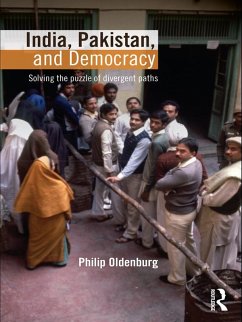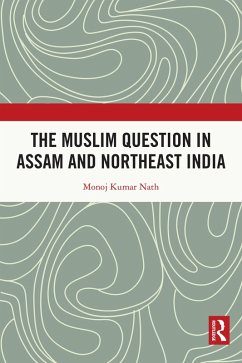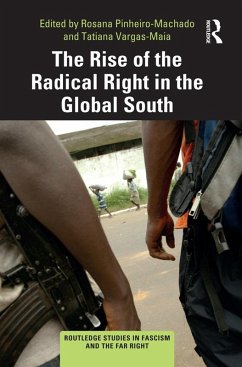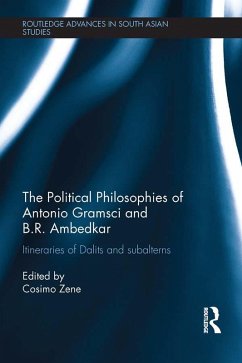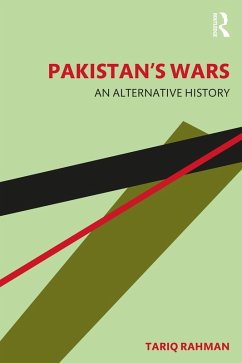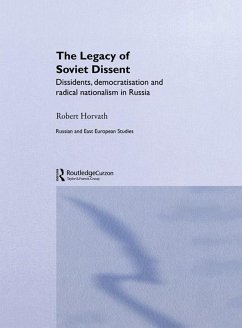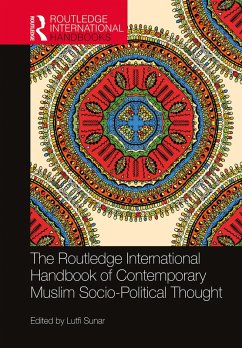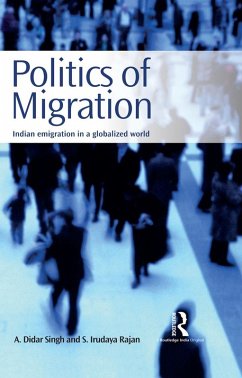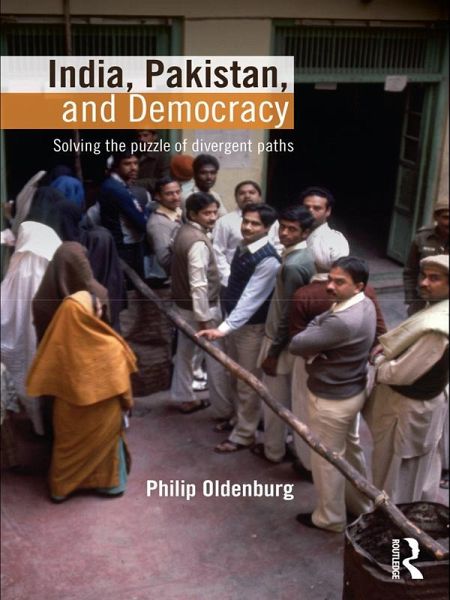
India, Pakistan, and Democracy (eBook, PDF)
Solving the Puzzle of Divergent Paths
Versandkostenfrei!
Sofort per Download lieferbar
54,95 €
inkl. MwSt.
Weitere Ausgaben:

PAYBACK Punkte
27 °P sammeln!
The question of why some countries have democratic regimes and others do not is a significant issue in comparative politics. This book looks at India and Pakistan, two countries with clearly contrasting political regime histories, and presents an argument on why India is a democracy and Pakistan is not. Focusing on the specificities and the nuances of each state system, the author examines in detail the balance of authority and power between popular or elected politicians and the state apparatus through substantial historical analysis.India and Pakistan are both large, multi-religious and mult...
The question of why some countries have democratic regimes and others do not is a significant issue in comparative politics. This book looks at India and Pakistan, two countries with clearly contrasting political regime histories, and presents an argument on why India is a democracy and Pakistan is not. Focusing on the specificities and the nuances of each state system, the author examines in detail the balance of authority and power between popular or elected politicians and the state apparatus through substantial historical analysis.
India and Pakistan are both large, multi-religious and multi-lingual countries sharing a geographic and historical space that in 1947, when they became independent from British rule, gave them a virtually indistinguishable level of both extreme poverty and inequality. All of those factors militate against democracy, according to most theories, and in Pakistan democracy did indeed fail very quickly after Independence. It has only been restored as a façade for military-bureaucratic rule for brief periods since then. In comparison, after almost thirty years of democracy, India had a brush with authoritarian rule, in the 1975-76 Emergency, and some analysts were perversely reassured that the India exception had been erased. But instead, after a momentous election in 1977, democracy has become stronger over the last thirty years.
Providing a comparative analysis of the political systems of India and Pakistan as well as a historical overview of the two countries, this textbook constitutes essential reading for students of South Asian History and Politics. It is a useful and balanced introduction to the politics of India and Pakistan.
India and Pakistan are both large, multi-religious and multi-lingual countries sharing a geographic and historical space that in 1947, when they became independent from British rule, gave them a virtually indistinguishable level of both extreme poverty and inequality. All of those factors militate against democracy, according to most theories, and in Pakistan democracy did indeed fail very quickly after Independence. It has only been restored as a façade for military-bureaucratic rule for brief periods since then. In comparison, after almost thirty years of democracy, India had a brush with authoritarian rule, in the 1975-76 Emergency, and some analysts were perversely reassured that the India exception had been erased. But instead, after a momentous election in 1977, democracy has become stronger over the last thirty years.
Providing a comparative analysis of the political systems of India and Pakistan as well as a historical overview of the two countries, this textbook constitutes essential reading for students of South Asian History and Politics. It is a useful and balanced introduction to the politics of India and Pakistan.
Dieser Download kann aus rechtlichen Gründen nur mit Rechnungsadresse in A, B, BG, CY, CZ, D, DK, EW, E, FIN, F, GR, HR, H, IRL, I, LT, L, LR, M, NL, PL, P, R, S, SLO, SK ausgeliefert werden.




